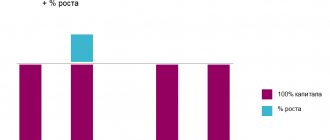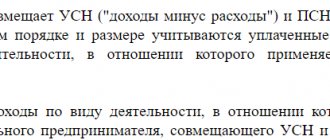Types of document
If the organization has a single founder, who is also the director, then it is necessary to formalize his own decision. The document will be called “Decision of the sole participant” and will not require a general meeting of founders.
If there are several founders and they all came to a common decision to make a major transaction, then a special protocol of the meeting of founders is drawn up. It can be called the decision of the founders to approve a major transaction.
In principle, the name does not play a special role here. The main thing is the content of the paper and compliance with the requirements for document formation.
How to act as a sole founder
The format and name of the decision to approve a major transaction directly depend on the number of founders of the company participating in the procurement. In PJSC and LLC with several founders, the result on this issue is determined at the general meeting, after which a protocol of approval is drawn up. If one founder is indicated in the enterprise, then a decision of a single participant is prepared for accreditation on the electronic signature and participation in government procurement.
For those companies in which the sole founder combines his functions with the sole executive body, the formation of an approval form is not mandatory. This standard is specified in paragraph 7 of Art. 46 14-FZ.
But 44-FZ contains other rules establishing the obligation of a procurement participant (a legal entity accredited on an electronic platform) to attach an approval decision, regardless of the form of ownership.
To avoid rejection of the application and disputes in the FAS, potential suppliers are recommended to provide a decision on approval of a major transaction not only as part of the registration documents, but also in the documentation that is an integral appendix to the application for participation in public procurement.
What kind of deal is considered large?
According to paragraph 3 of Article 46 of Federal Law No. 14-FZ, the cost of property with which a company can conduct transactions can be 25-50% of the book value. Such a transaction can be considered major and requires the convening of an extraordinary meeting of the founders. Naturally, if it does not relate to the normal business activities of the organization. The book value is determined based on information from the last date of the financial statements.
A major transaction can be a lease or a loan. Not only can sales and purchases be considered major transactions, but they tend to be the most common.
Expanding the definition, we can say that not only goods, but also intellectual property can be purchased and sold in a major transaction.
When is such approval needed in the contract system?
Expert opinion
Kurtov Mikhail Sergeevich
Practitioner lawyer with 15 years of experience. Specializes in civil and family law. Author of dozens of articles on legal topics.
To start participating in government procurement, you need to register in the Unified Information System. To do this, they provide a general package of documents, which includes consent to the transaction.
Moreover, this is always required, including when the purchase does not fall into the large category. As for suppliers who were accredited before December 31, 2018, they are required to register in the Unified Information System by the end of 2020.
Both will need an up-to-date sample decision on a major transaction 44-FZ.
Information must also be included in the second part of the application if required by law or constituent documents, and also when both the security for the contract or application and the contract itself will be large for the participant. In the absence of this information, the candidate may be rejected at any stage before the conclusion of the contract.
The customer’s auction commission is responsible for checking the data (clause 1, part.
This is important to know: Which articles are included in the amnesty for the 70th anniversary of the Victory
6 tbsp. 69 No. 44 Federal Law).
It is important to note that individual entrepreneurs, unlike LLCs, are not legal entities. Therefore, they are exempt from the obligation to submit such a document for accreditation to the ETP.
Participants
Decision making in an organization can take place according to several scenarios. Everything will depend on the wording in the constituent documents. The most common situation is when a company has one founder and several participants, but there are other forms. Each participant in the general meeting of founders may have a different percentage of votes. Without a quorum of all founders, the minutes of the meeting will be invalid. The decision is made by a majority vote. Not all founders may be on board with a major deal.
Components of the founders' decision
The paper should have an introductory part in the form of a header and a statement paragraph, as well as a description of the agenda, the decision made and signatures. The header contains standard information about the name of the organization, its details, date and city of compilation. The document must have a number. Through it, the paper is then entered into the registration documents of the organization.
The stating part is descriptive in nature and consists of an indication:
- Meeting places. Despite the fact that the city is already indicated, the territorial affiliation in this paragraph is specified by a specific address.
- Dates.
- Start and end time of registration of participants. This is a formal point, but its presence indicates the conscientiousness of filling out the founders’ decision on the approval of a major transaction by the secretary.
- List of meeting participants. A note indicating whether there is a quorum or not is required. Without it, all other actions and signatures will be invalid.
- Information about which participant has what percentage of votes. This data is taken from the constituent documents.
- Opening and closing times of the meeting.
- Full name of the secretary who formalizes the founders’ decision in the proper form.
Big deal
A major transaction is one or several transactions in the legal field of the Russian Federation related to the purchase and sale, guarantee, registration of collateral, provision of a loan, as well as the alienation of property in the amount of 25% (in some cases from 10%) of the total value of the company’s assets. Total indicators of an enterprise's capital can be taken from the financial statements as of the last day of the reporting period.
Operations related to:
— with the normal business activities of the company; — with the placement of securities (sale of common shares through open or closed subscription); — with the placement of issue-grade assets that can be converted into common shares of the company.
Types and essence of major transactions
Today, there are several types of major transactions for each form of legal entity:
1. Major transaction for LLC. Its features:
- purchase or sale of material assets, the total price of which is more than 25% of the total property of the enterprise. The value of the LLC's property is determined based on information from the financial statements for the last 6-12 months.
- always associated with the alienation or purchase of company property;
— the procedure for conducting such transactions can be specified by the community. It can be supplemented or changed if necessary;
— such operations can be direct or represent a chain of interconnected transactions.
2. Major transaction for JSC. Its features:
- one or more operations on the market related to the purchase or sale of property (carried out directly or indirectly). The total volume of the transaction must be more than 25% of the total balance sheet value of the enterprise's assets. Such operations also include guarantees, pledges, loans and others;
— to calculate the indicator, the book price as of the last date of the reporting period is taken;
— major transactions cannot include operations that are related to the normal activities of the company - the placement of ordinary shares or other assets convertible into this type of shares;
— the charter of a joint-stock company may establish other cases when a transaction will be classified as large.
3. Major transaction for unitary enterprises. Its features:
— operations that are associated with the direct or indirect purchase (sale) of property in the amount of 10% or more of the authorized capital. In this case, the transaction value must be from 50 thousand minimum established salaries;
— the value of property is determined on the basis of financial statements (in case of alienation);
— the value of the property is determined based on the size of the seller’s price (when making a purchase).
4. Major transaction of municipal and state companies. Peculiarities:
- these are market transactions related to the purchase and sale of property (disposal of monetary assets), as well as the transfer of material assets for use, if the total value of the transaction object is more than 10% of the total assets of the state (municipal company);
— information about the company’s assets is taken from the financial statements for the latest date if the company’s charter does not provide for a lower transaction size.
As already mentioned, major transactions do not include transactions that occur during the normal course of business of the company. These include transactions:
- which are related to the sale of finished goods; — have a connection with the purchase of materials or raw materials necessary for the conduct of the company’s activities; — for obtaining loans for current payment of operations.
Procedure for approval of major transactions
In practice, in enterprises of different forms of ownership, the approval procedure differs:
1. Approval of major transactions in LLC:
— the decision to carry out a transaction, as a rule, is made by the general meeting of the founders (shareholders of the company);
— if the total volume of the transaction is from 25 to 50% of the total capital of the company, then the decision remains with the supervisory board (board of directors). This procedure is approved by the company’s charter within its competence;
— if a major transaction was approved by the participants in violation of the law of the Russian Federation, then it can be challenged in court and declared invalid;
— if an LLC has only one founder and owner of shares, then a simple written application is sufficient to approve a major transaction. In this case, there is no need to draw up minutes of the LLC meeting.
2. Approval of a major transaction in JSC:
— approval of such transactions is within the competence of the meeting of shareholders. In some cases, approval is solely within the purview of the board of directors. So, if the total volume of the transaction is in the range from 25 to 50% of the assets of the joint-stock company, then the decision must be made by the board of directors. In this case, approval of the operation must be made by unanimous decision. Moreover, each member of the board of directors must vote personally and not delegate his powers to another person;
— if one of the members of the board of directors is absent for any reason, the meeting must be moved to a date convenient for everyone. If this rule is not followed, the transaction will be considered illegitimate;
— in the case when the transaction volume is more than 50% of the total book value of the company’s assets, the transaction must be approved by a meeting of shareholders with voting shares in hand. The peculiarity here is that the owners of preferred shares do not vote. In such a situation, the deal will be approved if more than ¾ of the votes are cast for it. If the order is violated, then the operation can be declared invalid;
— the process of invalidating a transaction can be initiated by the company or the shareholder. To do this, it is enough to file a claim in court. If the company has only one founder, then the general director can approve the transaction by writing a corresponding document in writing.
3. Approval of a major transaction in a unitary company:
— the decision to carry out a major operation lies with the owner of the company’s property. All material assets of such a structure are the property of the Russian Federation or a constituent entity of the Russian Federation. For municipal enterprises, municipal (local) authorities act as owners;
— if a major transaction is concluded as part of the company’s normal activities and is not agreed upon with the owner of the property, then it will be considered invalid. Consequently, almost any operation that is carried out by a unitary enterprise will relate to economic activity;
— if the owner of the company’s property did not give his approval to the transaction, then it may be declared invalid.
4. Approval of a major transaction of companies of municipal or state government:
- a major transaction is available to a budget company only if it has the appropriate permission from the body playing the role of the founder of such a company;
— the role and main functions of the founders in such a company are assumed by the federal executive authorities. In addition, in some cases, local government bodies may assume the corresponding functions;
— if a budget institution is going to make a major transaction, then the following documents must be submitted to the relevant government authorities:
• Draft agreement, which contains all the conditions of the future operation;
• An appeal from the head of the company to agree on the terms of the transaction, indicating all its parameters - price, timing, content of the financial and economic feasibility study, and so on;
• Budget reporting for 12 months and for the last day of the reporting period (a copy is sufficient). The document must contain the signatures of the chief accountant and the manager of the company;
• A report assessing the market price of the property involved in the transaction. The assessment must be carried out no later than 3 months before the operation;
• Information about the company's receivables and payables, mentioning all the parameters of debtors and creditors, as well as the amount of debt.
— approval of a major transaction is carried out within a month from the date of transfer of documents. Upon decision, an order is issued by the Ministry of Finance of the Russian Federation;
- if the enterprise is autonomous, then a major transaction can be completed after the approval of the Supervisory Board. In this case, the latter must consider the request within 15 days from the date of submission of the proposal (unless a shorter approval period is specified in the charter);
— the supervisory board of an autonomous enterprise may include representatives from executive authorities or local government;
— to make a decision on carrying out a major transaction at a municipal enterprise there must be at least 2/3 of the votes of representatives of the supervisory board.
Agenda
The main part of the decision is the numbered agenda. Numbering is a prerequisite, even if there is only one item on the list. And in this case it will be the item “On approval of a major community transaction.” When describing the discussion, you must indicate in the document:
- Subject of the transaction. This can be either a tangible product or intellectual property.
- It is planned to buy, sell, rent or another type of action with a large-value product.
- The exact price of the transaction.
- On what terms is the transaction made?
- With whom it is planned to make a major transaction for the organization.
Each of the points in the text of the document must be discussed by the participants. At a minimum, there should be information about who put forward the proposal, its essence and arguments. If all other founders agree, then a unanimous decision is made. If not, then each meeting participant’s opinion is recorded in the minutes. These are the mandatory rules for maintaining these documents.
After each item there should be the phrase “Resolved” and the voting results on the issue raised. These results should be expressed as a percentage. At the end, you can make a note as to whether other questions were raised during the meeting.
In what cases may a certificate be needed?
Expert opinion
Kurtov Mikhail Sergeevich
Practitioner lawyer with 15 years of experience. Specializes in civil and family law. Author of dozens of articles on legal topics.
The current legislation of the Russian Federation does not establish specific cases in which it becomes necessary to provide a certificate stating that the transaction is not considered large for the company.
At the same time, an analysis of practice shows that the need for this certificate most often arises:
- in the event that the company acts as a participant in a procurement carried out on the basis of the federal law of 04/05/2013. No. 44-FZ “On the contract system in the field of procurement of goods, works, services to meet state and municipal needs” or the federal law of July 18, 2011. No. 223-FZ “On the procurement of goods, works, services by certain types of legal entities”;
- in the event that a share of the company’s capital is alienated, this certificate will be required by the notary authorities;
- in the Federal Service for State Registration, Cadastre and Cartography when registering transactions with real estate.
In these situations, the certificate will confirm the authority of the head of the limited liability company. In addition, this certificate will confirm that the head of the company has the right to solely dispose of the property of this company without obtaining additional permits.
This is important to know: Social pension in Russia: who is entitled to it, conditions of assignment
Watch the video. How to approve a major transaction in an LLC:
Dear readers of our site! Our articles talk about typical ways to resolve legal issues, but each case is unique.
If you want to find out how to solve your specific problem, please contact the online consultant form on the right. It's fast and free! Or call us at :
Moscow, Moscow region
St. Petersburg, Leningrad region
Federal number for other regions of Russia
If your question is lengthy and it is better to ask it in writing, then at the end of the article there is a special form where you can write it and we will forward your question to a lawyer specializing specifically in your problem. Write! We will help solve your legal problem.
Term
In practice, there are situations when the transaction is delayed. In order not to drown in proceedings regarding the legitimacy of the transactions, government authorities have approved a time period during which the decision on a major transaction remains in force.
Automatically, the approval period for a specific transaction will be equal to one calendar year. Unless, of course, the approval period is specified in advance in the organization’s statutory documents or in the minutes of the founders’ meeting. Then the decision on this issue has already been made.
Notarization
According to paragraph 3 of Article 67 of the Civil Code, a notary can certify the founders’ decision to approve a major transaction. The second option is approval by signing by all meeting participants. Naturally, the lion's share of organizations prefers the second option.
But in order for such certification to become possible, it must be stated in the founders’ decision as a separate clause. This will be more legally correct. Therefore, in addition to the first point about directly making a decision, the document may also contain a second point: about choosing a method for confirming the decision made. Each of the agenda items has a description in the attached sample of the founders' decision to approve a major transaction.
Protocol
Consent to enter into a transaction based on the voting results is drawn up in the form of an appropriate protocol.
- List of persons who are beneficiaries (with the exception of cases when the contract was concluded at auction or if at the time of obtaining consent these persons cannot be identified).
- Price.
- Subject of the operation.
- Other significant details. Such details may include the duration of the decision, as well as upper and lower thresholds for the value of the property.
A fragment of a sample protocol on the approval of a major LLC transaction is presented below.
Expert opinion
Kurtov Mikhail Sergeevich
Practitioner lawyer with 15 years of experience. Specializes in civil and family law. Author of dozens of articles on legal topics.
The minutes must be drawn up within three days from the date of the meeting or within another period established in the charter. Within ten days from the date of the decision, copies of the protocol must be sent to all participants of the organization.
This is important to know: Application for return of loan insurance: sample 2020










